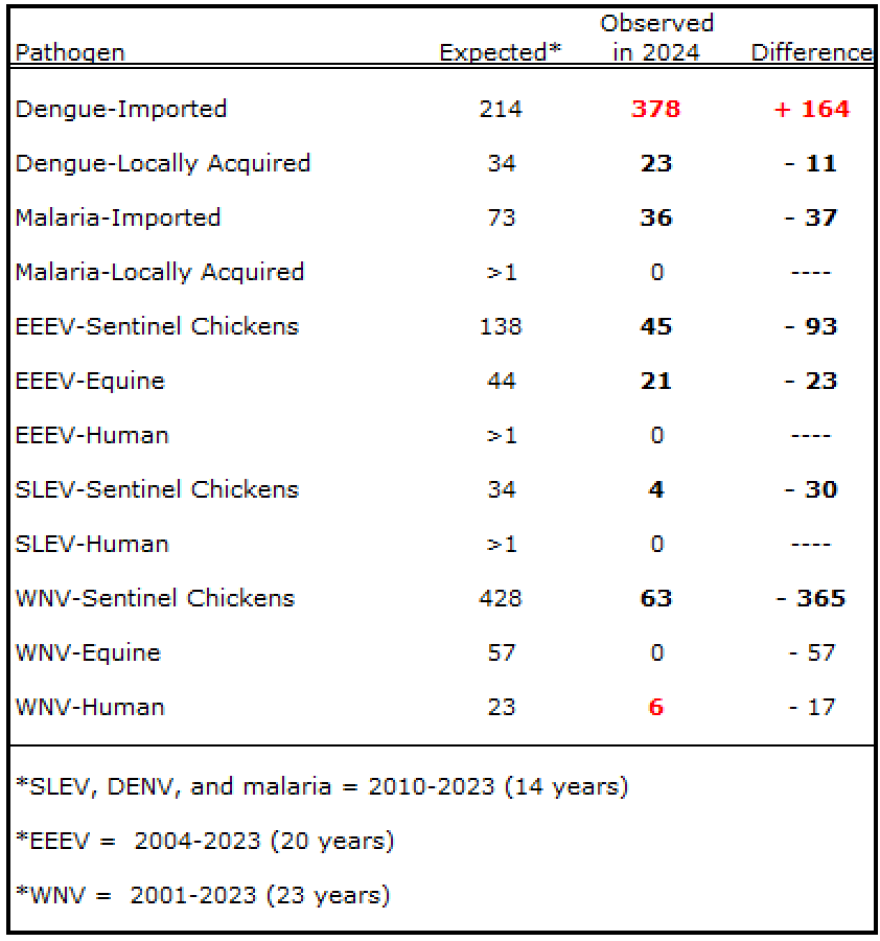For the first time in nearly 100 years, two cases of the mosquito-borne disease, dengue, were acquired in Orange County.
“In modern times, we've not had any local transmission,” said Steve Harrison, the manager of Orange County Mosquito Control. He said the last cases probably were recorded in the mid-1930s.
But that changed last week when two locally acquired cases of dengue were reported in Lockhart, the northwest part of Orange County.
The disease is carried by a specific mosquito, Aedes aegypti – which is a daytime biter that changed its hunting behavior over time to match the peak of human activity. Dengue can only spread in Florida if a person who acquired dengue from outside the country is bit by a mosquito that can carry it. Luckily, it doesn’t fly very far with a flight range of 200 yards.

“It's almost like a feral house cat. Wherever it emerges from, it stays in close proximity to that area,” Harrison said. “You have to be in close proximity to somebody who is sick with the virus and is able to transmit the virus to a mosquito.”
Harrison’s team deployed to the Lockhart area where the patients lived and began applying boots-on-the-ground barrier spray treatments, spray applications from trucks, and looking for spots where water has gathered – potted plants, wheelbarrows, and buckets – that are breeding spots for Aedes aegypti.
“Look around. If you have anything that can hold water for more than five days, it can breed mosquitoes. Scour your yard. Dump out any containers,” Harrison said.
Dengue can produce high fever, severe muscle pain, as well as pain behind the eyes, and nausea. In severe cases, it can cause serious bleeding and death.
The sudden emergence of dengue in Florida is a symptom of larger viral activity happening outside the U.S. The Caribbean, along with North and South America are experiencing record-breaking reports with 11 million cases documented, according to the Centers for Disease Control and Prevention.

State travel cases have far exceeded expectations in 2024. For the year, the Department of Health expected 214 cases. So far, there have been 378 in Florida – about 150 cases more than this same time last year. The most common places travelers have picked up dengue before coming back to Florida have included Brazil, Columbia, Cuba, and Puerto Rico.
The heavily visited tourist destination of Orange County has received 26 travel cases this year, but Harrison said Mosquito Control has responded to about 46 suspected dengue cases this year.
Conditions in Florida have been just right for Aedes aegypti to breed in the Sunshine State with wet conditions that are expected to persist, according to University of Florida medical entomology professor Johnathan Day.
“The wet surface conditions favor the reproduction, blood feeding, and dispersal of Aedes aegypti which will likely continue to favor locally-acquired dengue transmission in Florida,” Day said in his weekly newsletter which surveys mosquito-borne disease activity.

So far Florida has had 23 cases of locally transmitted dengue, according to the DOH. Most cases have been reported in South Florida, where there are more tropical conditions.
Harrison and the team are determined to make sure no more local dengue is reported. Still, they’re disappointed they didn’t get a heads-up on the Lockhart cases.
Whoever first brought it back, probably came back asymptomatic, or if they did have symptoms, they weren't severe enough where they sought medical treatment,” Harrison said. Dengue is a reportable disease, meaning medical providers must communicate with the DOH when dengue is diagnosed.
“But we were never notified,” he said. “So unfortunately, we never responded to that initial case, because we just weren't aware of it. Had we responded, I would like to think that we could have prevented the local transmission.”
For now, Harrison is urging the public in and around Lockhart to dump water containers, wear long, light clothing to cover up and use bug spray.
“I don't want people to panic. My mosquito control crews are out actively responding to this,” he said. “If you can get rid of that water, that'll definitely help us out, and it's going to protect you and your family.”
If you are experiencing high mosquito swarms, call the Orange County helpline 311.






